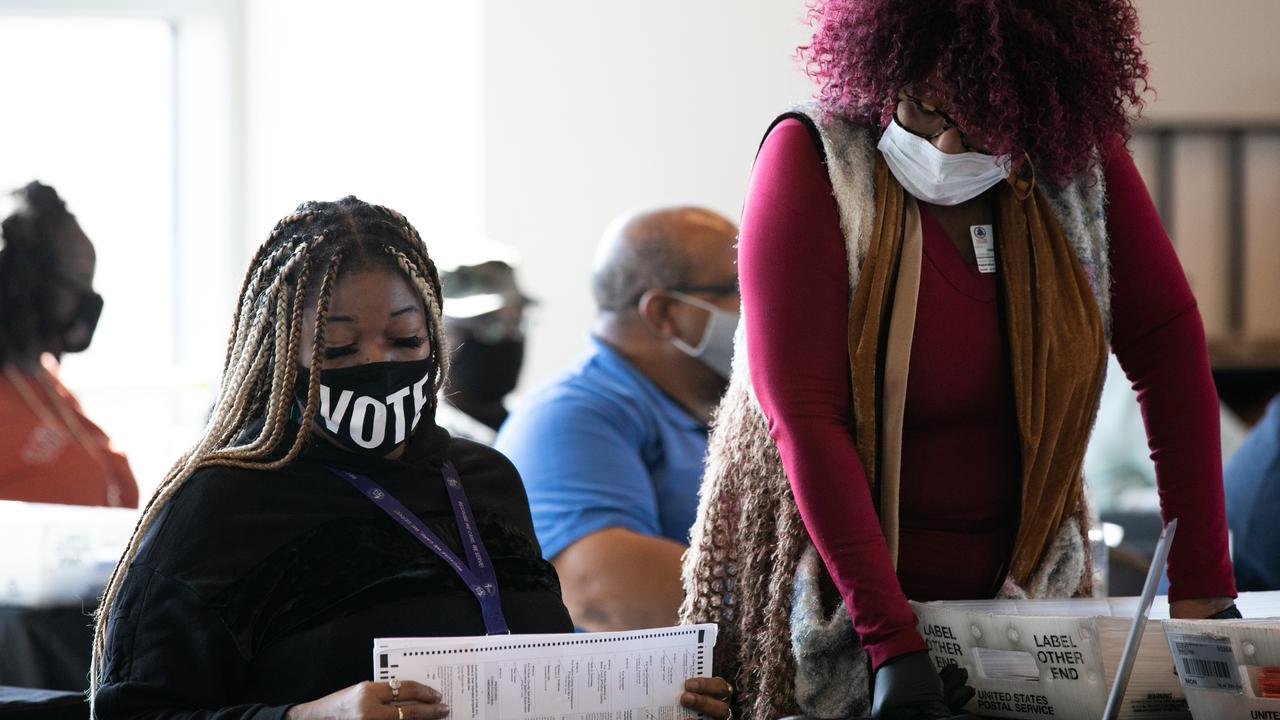Donald Trump’s post-presidency plan revealed
One of Donald Trump‘s key advisers has revealed the former President’s plans for the future – and it’s probably not what most were expecting.
Donald Trump has remained tight-lipped about his future plans after leaving office, telling a reporter at his golf club on Friday that “we’ll do something, but not just yet”.
But one of his key advisers, Jason Miller, has revealed in a podcast interview with Carrie Sheffield from Just the News what the former President’s next steps will be.
Despite rumours Mr Trump was toying with the idea of forming his own political party, the “Patriot Party”, Mr Miller said his boss was focused on something more important — election integrity.
Mr Miller said Mr Trump intended to help Republicans win back the House and Senate in 2022 “to make sure that we can stop the Democratic craziness”, and that “you’re also going to see him emerge as the nation’s leader on ballot and voting integrity”.
President Trump's Post-Presidency Plans https://t.co/jGaSeHXChF
— Jason Miller (@JasonMillerinDC) January 23, 2021
But the adviser said that would never happen in Washington DC because Democrats did not believe there were any problems with elections, so Mr Trump would instead work with individual state legislatures on voting reform.
“As we saw, an important thing to keep in mind, so much of our debate between the election and up until a couple weeks ago was over these Article 2 abuses and the Constitution, where only the state legislatures can actually go and set (the rules for mail-in voting),” Mr Miller said.
“This is something we’re going to start ramping up, not immediately. We’ll give them a little bit of a transition period but this is critical and we have to do it.”
Changes to mail-in voting procedures that ultimately benefited Joe Biden was one of the key issues raised by Mr Trump and others – including the state of Texas in its rejected Supreme Court lawsuit against Georgia, Michigan, Pennsylvania and Wisconsin – in his campaign to overturn the election results.
Republicans argued that officials in key battleground states unlawfully made sweeping changes to expand access to mail-in voting while simultaneously weakening security measures such as signature verification, in violation of Article 2 of the US Constitution, which puts state legislatures in charge of election rules.
The Trump campaign and its allies launched a number of high-profile lawsuits in the weeks after the election, all of which were rejected for various reasons including lack of standing or evidence.

In addition to the courts, Mr Trump’s lawyers attempted to directly pressure state legislatures to overturn their election results.
When that failed, they hoped to convince Vice President Mike Pence to use his largely ceremonial role as President of the Senate in the January 6 certification procedure to reject the electoral votes from the contested states and send them back to the legislatures, effectively delaying the process.
Mr Trump invited his followers to Washington DC on that day to protest outside the Capitol, where Mr Pence ultimately refused to go along with the plan, saying he did not have the Constitutional authority.
Tensions flared and rioters breached the building, with five people killed in the violence including a Trump supporter who was shot as she attempted to climb through a window.
On Friday, former Trump campaign spokesman Hogan Gidley admitted that his former boss’ final days in office were a “black eye” on his presidency.
Speaking to Showtime’s The Circus, Mr Gidley was told by host Alex Wagner that “the thing he’s going to be remembered for, the final act of his presidency, is a white supremacist mob storming the Capitol and trying to kill lawmakers”.
Mr Gidley replied, “There are a lot of things in that administration that happened in four years that people are going to try and point to as, like, one seminal thing.”
Wagner pointed out that Mr Trump is being impeached for allegedly inciting an insurrection at the Capitol.
“I’m just trying to point out the fact that he accomplished a lot from a policy standpoint,” Mr Gidley said. “He was a lightning rod from a personality standpoint, and there’s no question this last little bit was a black eye.”
Asked whether he thought the former President regretted his actions, Mr Gidley said, “I don’t know because I — we didn’t talk about that particular thing. I don’t want to guess or try to put thoughts in his head or words in his mouth. All I can do is look at what he said in real time. I don’t know if he regrets anything or not.”




